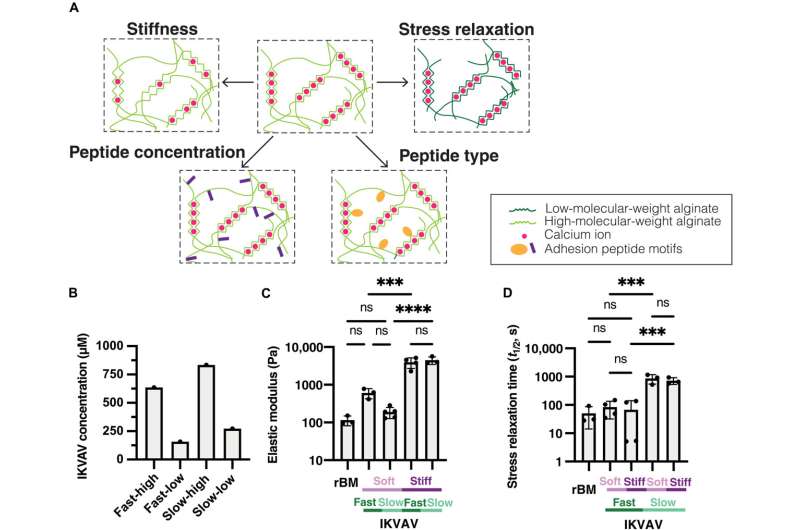Now Baude, Stowers and their colleagues have created an algae-based gel in the lab as a platform for studying mammary epithelial cells, which form milk-producing ducts and glands in healthy breast tissue and can transform into cancer cells. “Not only did we create something that can mimic commercially made gels, but we were able to use what we’ve made to our advantage to learn more about the cells and the material,” Baude said.
In research published in the journal Science Advances, the team demonstrates that their gel successfully supports the development of normal mammary gland tissue and can be modified to direct how cells grow. By adjusting the mechanical and biochemical properties of the gel, researchers can learn more about how cells in the body are shaped by their physical environment.

